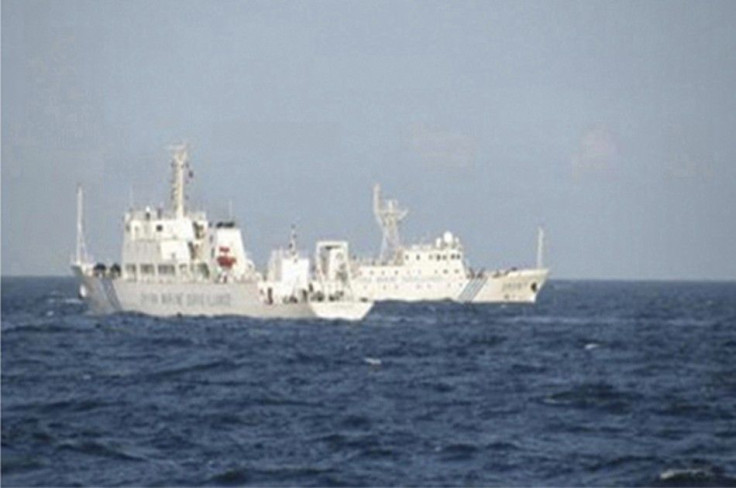South China Sea: Chinese Ships Leave Contested Waters After Indonesia Sends Warships, Fighter Jets

The head of Indonesia’s armed forces’ information center told local reporters that Chinese ships have vacated the waters around the Natuna Islands located off the coast of Borneo, about 600 miles north of Jakarta. Major General Sisriadi said, “The Chinese vessels that have conducted illegal fishing have exited the [exclusive economic zone], after our president’s arrival in Natuna.”
Indonesian President Joko Widodo had paid a visit to the area Wednesday where he had sent warships and fighter jets to assert Indonesia’s sovereignty in the region.
The Islands have been an area of contention for the past several years between the world's first and fourth most populated countries. The South China Sea is an important international waterway and is assumed to contain a wealth of oil and gas reserves under the waters.
Indonesia is one of several ASEAN nations that have seen Chinese fishing vessels and patrol boats entering their exclusive economic zones (EEZs). In at least one instance in Vietnam, the Chinese set up an oil rig and deployed an aircraft carrier. The territorial disputes always pit the EEZs against China’s Nine-Dash line covering most of the sea.
This latest encroachment began on Dec. 30 but after some tense verbal exchanges, the two countries seem to have mended the fences and are once again referring to each other as “friends”. This leaves observers to speculate on the nine-day spat.
Collin Koh, a research fellow with the S. Rajaratnam School of International Studies at Singapore’s Nanyang Technological University, commented on the departure of the Chinese boats. He said: “I think the incursions were done to test Jokowi in his second term,” he said referring to Widodo by his popular nickname.
He added that the Chinese wanted to “…leave, pull out, before things get any worse and draw an Indonesian response. Indonesia is a large country, and China doesn’t want to alienate it. I’m not sure this incident is going to galvanize anything. It’s the same cycle of action and reaction. It’s a knee-jerk reaction from the Indonesian government.”
Another opinion was voiced by Gregory Poling, director of the Asia Maritime Transparency Initiative at the Centre for Strategic and International Studies in Washington. He compared the size of Indonesia’s armed forces, particularly the coast guard, to the giant Chinese naval forces and questioned if they could enforce any long-term control over the islands.
He said, “The Indonesian military is 90 percent land-based. The TNI [Indonesian National Military] sends all their money to the Army. So, the question is: can they do anything about this?” in reference to any naval disputes.
Indonesia did not seem concerned about any effects from the dispute on bilateral trade or investment that is much more vital to Indonesia than China. Luhut Pandjaitan, Indonesia’s coordinating minister for maritime affairs and investment cited his president and said, “It has nothing to do with investments. Sovereignty is sovereignty.”
© Copyright IBTimes 2025. All rights reserved.





















